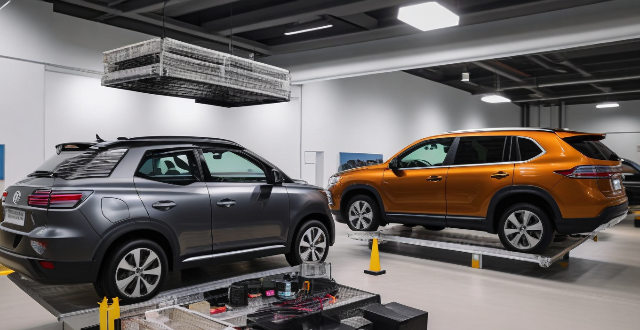When taking a car for a test drive, pay attention to performance, comfort, ergonomics, safety features, and maintenance & cost. Check acceleration, braking, steering, handling, visibility, noise level, seating, accessibility, climate controls, vibration, suspension, dashboard, controls, mirrors, storage, entry/exit, airbags, backup camera, ABS, ESC, TPMS, fuel economy, service history, warranty, resale value, and insurance costs. By doing so, you can make an informed decision about whether the car meets your requirements and is worth purchasing.

Key Things to Look Out for During a Car Test Drive
When taking a car for a test drive, it's essential to pay attention to several key aspects to ensure that the vehicle meets your expectations and is in good condition. Here are some of the most important things to look out for:
1. Performance
- Acceleration: Check how quickly the car accelerates from a standstill and while overtaking.
- Braking: Test the responsiveness and effectiveness of the brakes.
- Steering: Evaluate the steering for smoothness and accuracy.
- Handling: Pay attention to how the car handles turns and corners.
- Visibility: Ensure that you have a clear view of the road and any blind spots.
- Noise Level: Listen for any unusual noises coming from the engine or suspension.
2. Comfort
- Seating: Sit in the driver's seat and adjust it to your comfort level.
- Accessibility: Check if you can easily reach all controls without stretching.
- Climate Controls: Test the air conditioning and heating systems.
- Vibration: Feel for any excessive vibrations or shakiness while driving.
- Suspension: Notice if the ride is smooth or bumpy.
3. Ergonomics
- Dashboard: Ensure that the dashboard is easy to read and understand.
- Controls: Test all controls, including wipers, lights, and audio system.
- Mirrors: Adjust the mirrors and check for any blind spots.
- Storage: Look for adequate storage space for your needs.
- Entry/Exit: Make sure getting in and out of the car is comfortable.
4. Safety Features
- Airbags: Verify that there are sufficient airbags for both driver and passengers.
- Backup Camera: Test the backup camera if available.
- Anti-Lock Brakes (ABS): Check if the car has ABS and test its effectiveness.
- Electronic Stability Control (ESC): Inquire about ESC and its functionality.
- Tire Pressure Monitoring System (TPMS): Ensure that the TPMS is working correctly.
5. Maintenance & Cost
- Fuel Economy: Observe the fuel gauge to gauge the car's efficiency.
- Service History: Ask for service records to assess maintenance history.
- Warranty: Inquire about any remaining warranty or extended warranty options.
- Resale Value: Research the car's resale value and depreciation rate.
- Insurance Costs: Get an estimate of insurance premiums for the model you're test driving.
By paying attention to these key areas during a test drive, you can make an informed decision about whether a particular car meets your requirements and is worth purchasing.